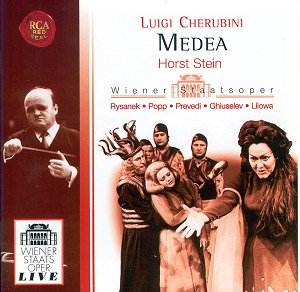 Composer: Franz Lehár, Oscar Strauss, Arnold Schoenberg, Johannes Brahms, Gustav Mahler, Hugo Wolf, Richard Strauss, Peter Cornelius, Adolf Jensen, Engelbert Humperdinck
Composer: Franz Lehár, Oscar Strauss, Arnold Schoenberg, Johannes Brahms, Gustav Mahler, Hugo Wolf, Richard Strauss, Peter Cornelius, Adolf Jensen, Engelbert Humperdinck
Works: “Come to me for tea,” “I am a woman who knows what she wants,” “Kiss me, my darling,” “Ninon,” “Every woman has a secret longing,” “Why shouldn’t a woman have an affair,” “O mother, I want to have a thingy,” “Down there in the valley,” “Who made up this little song?,” “In praise of high intellect,” “A girl’s first love song,” “A summer cradle song,” “An encounter,” “In the forest,” “A sound,” “Murmuring breeze,” “When at night I go to sleep,” “I’ll sing you my song.”
Performers: Felicity Lott (soprano), Graham Johnson (piano)
Recording: Rosslyn Hill Chapel, London, March 1999
Label: Forlane UCD16811
Felicity Lott’s album “s’amuse…auf Deutsch” continues her exploration of light-hearted, yet richly nuanced song repertoire, following the delightful precedent set by her earlier collection of French chansons. This new offering delves into the German song tradition, showcasing works by a variety of composers, each presenting a unique blend of wit, charm, and occasional depth. The juxtaposition of the playful and the poignant across these selections reflects both Lott’s interpretive finesse and the cultural landscape of early 20th-century German music, where cabaret and operetta flourished alongside more serious art song.
The album’s charm is immediately evident in the opening track, Lehár’s “Come to me for tea,” where Lott’s expressive phrasing imbues the seemingly straightforward invitation with a layer of suggestive subtext. Johnson’s piano accompaniment, characterized by its lightness and agility, complements Lott’s vocal lines with a playful lilt. This dynamic continues throughout Oscar Strauss’s selections, where pieces like “I am a woman who knows what she wants” and “Every woman has a secret longing” reveal Lott’s ability to inhabit characters with a sense of humor and self-awareness. Her diction is crisp, allowing the witticisms of the texts to shine through, a critical aspect of cabaret performance that can often be obscured by overly dramatic interpretations.
The recording captures the intimate atmosphere of the Rosslyn Hill Chapel beautifully. The sound engineering presents Lott’s voice with clarity and warmth, while Johnson’s piano is rendered with a delicate touch that enhances the overall listening experience. The balance between voice and piano is expertly managed, allowing each to shine without overshadowing the other. This clarity is particularly notable in Brahms’s “O mother, I want a thingy,” where the interplay of Lott’s playful lament and the subtle harmonic shifts in the piano creates an engaging dialogue.
Lott’s interpretative choices are particularly compelling in Mahler’s “Who made up this little song?” and “In praise of high intellect.” Here, she navigates Mahler’s ironic humor with a light-heartedness that is often overlooked in more dramatic renditions. The playful exchange between the nightingale and cuckoo in the latter piece finds a delightful balance of mischief and melody, showcasing both Lott’s vocal agility and her understanding of Mahler’s intent. Similarly, in Hugo Wolf’s “A girl’s first love song,” Lott’s nuanced articulation captures the delicate turmoil of youthful emotions with a blend of exuberance and introspection.
The collection is not without its moments of poignant beauty, as evidenced by Brahms’s “Down there in the valley,” where Lott’s phrasing evokes a deep sense of longing, contrasting sharply with the lighter fare surrounding it. This ability to transition seamlessly from humor to sentiment speaks to Lott’s versatility and deep understanding of the repertoire. Johnson’s accompaniment in this instance is particularly effective, providing a lush harmonic backdrop that supports Lott’s heartfelt delivery.
This album stands out not only for its selection of songs but also for the undeniable chemistry between Lott and Johnson. Their collaborative spirit is palpable, creating a cohesive narrative throughout the recital. The decision to include less frequently performed pieces, such as Cornelius’s “A sound” and Jensen’s “Murmuring breeze,” enriches the program, allowing listeners to discover hidden gems within the German song tradition.
Heartily recommended for both connoisseurs and newcomers alike, “s’amuse…auf Deutsch” exemplifies the charm of the German song repertoire through the lens of two exceptional artists. Lott’s vibrant interpretations, paired with Johnson’s sensitive accompaniment, invite the listener into a world where wit and sentiment coexist, making this recording an essential addition to any classical music collection.


